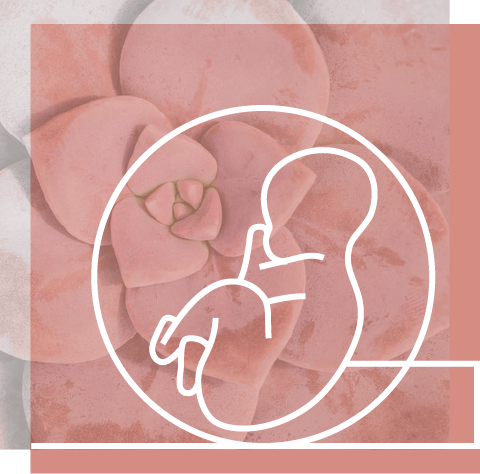Blood loss
Blood loss early in pregnancy by no means always implies miscarriage. There are many women who experience some vaginal bleeding early in their pregnancy. This is usually when a small blood vessel in the vagina or at the cervix is damaged. This may be due to, for example, exercise, difficult defecation, or after intercourse. Generally, these causes of vaginal bleeding are not dangerous for the unborn baby.
Miscarriage
A miscarriage is the loss of a non-viable foetus, which often starts with blood loss and sometimes abdominal cramps. About half of blood loss in early pregnancy leads to a miscarriage, while in other cases it has a harmless cause. A miscarriage often occurs due to a disposition disorder, where nature does not allow the foetus to grow further. It is more common than you think: over 1 in 10 pregnant women experience it.
When a miscarriage occurs, it usually comes on its own within a few days, but sometimes it takes longer. You may experience severe abdominal cramps and blood loss, similar to a heavy period, which subsides after a few hours.
When to contact us?
- In case of prolonged heavy bleeding.In case of fever
- In case of worry or anxiety
Do you have questions or need support? Feel free to contact us.
Recovery after a miscarriage
After a miscarriage or curettage, you may still experience one to two weeks of blood loss or brownish discharge. We recommend waiting until the bleeding has stopped completely before having intercourse. After that, your body will have recovered and you can become pregnant again.
Even if you have miscarried in the past, you have the same chance as other women to get pregnant again. Physically, there is no need to wait several months. Your period will usually return after six to eight weeks.
The psychological recovery after a miscarriage may take longer. Know that you are not alone in this. Sometimes extra help with coping can be nice. You can always discuss this with us or with your GP.
How to proceed
If a miscarriage is diagnosed as a result of the ultrasound, there are a number of options:
- Wait and see: If you have already had some blood loss, there is a 40 per cent chance that the miscarriage will start on its own within a week. This is preferred initially;
- Medication: Medication can be used to induce a miscarriage. This medication should be prescribed by the gynaecologist and is called Misoprostol (Cytotec).
- Curretage: For this, you will go under anaesthesia. The gynaecologist will then remove the pregnancy tissue through the vagina and cervix.

Some useful links:
Herstel na een miskraam
Na de miskraam of curretage kan je nog een week of twee last hebben van wat bloedverlies en of bruinige afscheiding. We raden aan om nog even met geslachtsgemeenschap te wachten totdat het bloedverlies helemaal gestopt is. Daarna is het lichaam weer hersteld en kan het opnieuw zwanger worden. Heb je een miskraam gehad in de voorgeschiedenis, dan heb je evenveel kans als iedere andere vrouw om gewoon weer zwanger te worden. Lichamelijk gezien is het niet nodig om een aantal maanden te wachten met opnieuw zwanger worden. Je kan je eerstvolgende menstruatie ongeveer na zes tot acht weken weer verwachten.
Psychisch gezien duurt het herstel soms wat langer. Veel voorkomende emoties hierbij zijn ongeloof, boosheid, schuldgevoel, verdriet en een gevoel van leegte. Tevens houdt de vraag ‘waarom?’ je misschien bezig. Schuldgevoelens zijn nagenoeg nooit terecht. Een gezondere leefwijze of minder stress hadden waarschijnlijk niet voor een andere uitkomst gezorgd.
Gelukkig verloopt een volgende zwangerschap meestal goed!
Enkele handige links:
-
lkpz.nl (Landelijk Kenniscentrum Psychiatrie en Zwangerschap)
